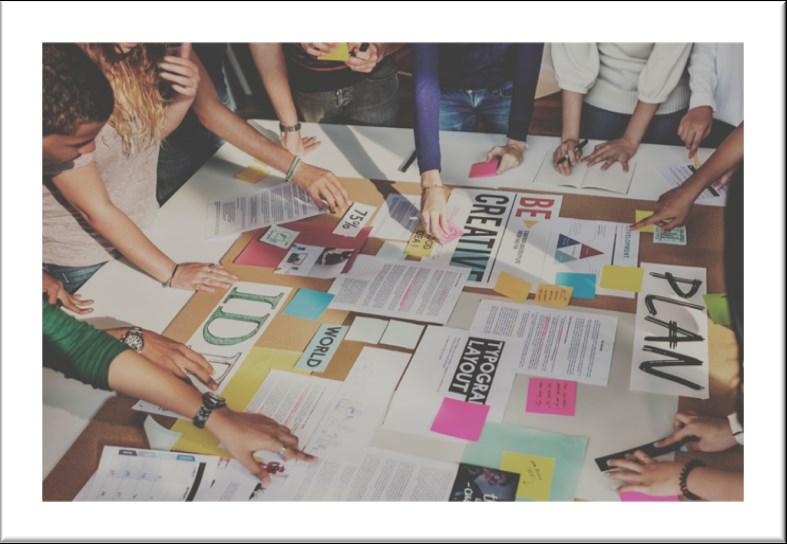



















Please note: The IPE Core Curriculum will be introduced in phases. Currently, students are required to participate in the Core Activities (TeamSTEPPS® Fundamentals, “Engage Me” Series, “What’s Wrong with Warren?” and BaFá BaFá.)

The





















Please note: The IPE Core Curriculum will be introduced in phases. Currently, students are required to participate in the Core Activities (TeamSTEPPS® Fundamentals, “Engage Me” Series, “What’s Wrong with Warren?” and BaFá BaFá.)

The

at UTMB features the following components:
Online Modules (to be introduced later)
• Introduction to IPE
• Interprofessional Communication
• Professional Roles and Responsibilities of an Interprofessional Team
• High Performance Teamwork
Core Activities
• TeamSTEPPS® Fundamentals
• “Engage Me” Series
• “What’s Wrong with Warren?”
• BaFá BaFá
Selectives (coming soon)
Students will be able to choose from IPE activities that have been committee approved and vetted to be included on the UTMB IPE Registry. The IPE Registry and IPE Activity Approval Form are located at https://www.utmb.edu/hec/ ipep
The overarching goal is for all learners who enter UTMB will be required to complete:
• Four (4) online modules
• Four (4) Core Curriculum activities
• Four (4) Selective activities
Each module, core activity, and selective activity will be included in the IPE Registry, a searchable data base of approved IPE activities and courses.
Currently the Core Curriculum is rolling out in stages. The four Core Curriculum activities will be the sole IPEP requirements for the 2023-2024 academic year.
School of Health Professions

• Christine Baker, EdD, PT Associate Dean for Academic and Student Affairs
School of Nursing
• Trish Richard, PhD, RN, Associate Professor Department Chair for Undergraduate Studies
John Sealy School of Medicine
• Andrew Roblyer, CHSE Director of Experiential Learning & Assessment
• Adrian Caraves Coordinator II
Physician Assistant Studies
• Veronica Marciano Assistant Professor
Graduate School of Biomedical Sciences
• Tracy Toliver-Kinsky, PhD Professor, Anesthesiology Director BBSC
• Daniel C. Jupiter, PhD Associate Professor
School of Public and Population Health
• Cara Pennel, DrPH, MPH Associate Professor Director, Public Health Program
About registrations:
• The IPE contacts (listed above) are responsible for assuring that students are registered for the IPE activities.
• IPE contacts will register students using Blackboard registration pages.
• Activities by months are listed on individual tabs at the bottom of the registration pages.
• IPE Contacts will add the students’ names and emails to the registration pages.
• Each student should be registered by: student’s last name, student’s first name, student’s UTMB email




Overview:
TeamSTEPPS® Fundamentals training is an evidence-based system used to prepare students and health professionals to work in effective collaborative teams to increase patient safety and health professions work satisfaction. The Agency for Healthcare Research and Quality (AHRQ) and the Department of Defense developed the program to improve communication and teamwork skills to mitigate medical errors.
OIPEP has redesigned the original TeamSTEPPS® program to maintain the fundamentals yet provide a relative, applicable approach for all schools.

TeamSTEPPS® Master Trainers lead this workshop and highlight the communication and leadership skills through engaging interactive team-building exercises.
• Understand how a shared mental model affects team effectiveness.
• Describe the communication tools for leading teams.
• Discuss the TeamSTEPPS® framework and key principles.
• Describe four communication tools and strategies.
• Describe effective team leader skills and three tools for leading teams.
• Define situation monitoring.
• Describe techniques for facilitating situation monitoring.
• Describe five tools and strategies for facilitating mutual support.
• Identify tools for use in conflict resolution.
• Describe observable behaviors associated with effective team performance.
• Summarize barriers to teamwork; tools and strategies to overcome teamwork barriers; and potential outcomes.
• Apply TeamSTEPPS® tools and strategies to a teambuilding exercise.
Target audience / level of learner:
Early learners from JSSOM, PAS, SHP, SON, GSBS and SPPH
Agenda or program activities in sequence:
Module 1 – Introduction
Module 2 – Team Structure
Module 3 – Communication
Module 4 – Leading Teams
Module 5 – Situation Monitoring
Module 6 – Mutual Support
Module 7 – Summary – Pulling It All Together
Length of activity (hours):
2 hours per session
Facilitators:
Two facilitators are needed per session. Each facilitator must be TeamSTEPPS® Master Trainer certified. Master Training is offered through the Texas IPE Consortium and the UTMB OIPEP. Check the OIPEP website for more information.

Assessment:
Students will be asked to participate in a pre/post survey for each event. Facilitators will a have a post survey to be used for program evaluation and future planning.
Resources:
• www.ahrq.gov
• www.aha.org
• All other resources for students are located in Blackboard“IPE Core Curriculum.”
Overview:
The “Engage Me” series consists of monthly sessions on a variety of topics designed for students to hear the voices of patients and caregivers. Students are required to participate in one but may participate in more. Some topics to be offered are:
• Alzheimer’ s
• Disparities in LGBTQ+ Healthcare
• Diabetes
• Long Covid
• Disabilities/ADA
• Epilepsy
• Vaccines
• Hospice
• Fentanyl Poisoning
• Cluster Headaches
Learning / Performance Objectives:
Each topic will have its objectives specific to the topic. The overarching objectives are:
• Place interests of patients and populations at the center of interprofessional health care delivery and population health programs and policies, with the goal of promoting health and health equity across the life span.

• Explore contemporary issues for persons and populations affected by healthcare concerns.
• Reflect on the population’s personal stories and apply to healthcare professional roles and responsibilities.
• Embrace the cultural diversity and individual differences that characterize patients, populations, and the health team.
Target audience / level of learner:
Early learners from JSSOM, PAS, SHP, SON, GSBS and SPPH
Agenda or program activities in sequence:

In general, each topic will include an expert panel with a Q&A followed by a topic focused case study. Students will then have the opportunity to hear the stories of patients and/or caregivers and to interprofessional discussion groups facilitated by community members, faculty, students, and staff who have experience with the topic.

Length of activity (hours):
Two hours per event
Facilitators:
These sessions are self-facilitating utilizing staff, panelists, students and patients/caregivers. During the case study students select from their breakout group a discussion facilitator, timekeeper, note taker and reporter.

Assessment:
Students will be asked to participate in a pre/post survey for each event. Facilitators will a have a post survey to be used for program evaluation and future planning.
Resources:
All resources for students are located in Blackboard“IPE Core Curriculum.”
Overview:
This large scale case study (typically an in-person session but has also been proven to be effective virtually) allows students from all departments to examine the roles and responsibilities in the care of a fictitious patient who undergoes care in three phases - acute, community response and rehabilitation. Students meet in interprofessional teams to work through the case and determine their roles and those of other professionals in the case. The event culminates with an all-school debrief.
Learning / Performance Objectives:
• Define student’s own role on a healthcare team.
• Understand the roles of other health professionals, patients, and caregivers on a healthcare team.
• Investigate ways collaborative teamwork can improve patient outcomes.
• Use the knowledge of one’s own role and those of other professions to appropriately assess and address the healthcare needs of the patients and populations served.
Specific Roles/Responsibilities Competencies:
• Communicate one’s roles and responsibilities clearly to patients, families, and other professionals.
• Recognize one’s limitations in skills, knowledge, and abilities.
• Engage diverse healthcare professionals who complement one’s own professional expertise, as well as associated resources, to develop strategies to meet specific patient care needs.
• Explain the roles and responsibilities of other care providers and how the team works together to provide care. Use the full scope of knowledge, skills, and abilities of available health professionals and healthcare workers to provide care that is safe, timely, efficient, effective, and equitable.

• Communicate with team members to clarify each member’s responsibility in executing components of a treatment plan or public health intervention.
• Forge interdependent relationships with other professions to improve care and advance learning.
Target audience / level of learner:
Early learners from JSSOM, PAS, SON, SHP, GSBS and SPPH.
Agenda or program activities in sequence:
• Overview of “What’s Wrong with Warren?”
• Defining interprofessional education and interprofessional collaborative practice

• Large group instruction
• Interprofessional team discussion
• Debrief
Length of activity (hours):
Three hours per event
Facilitators:
Facilitators are faculty members recruited from each of the schools.
Assessment:
Students will be asked to participate in a pre/post survey for each event. Facilitators will a have a post survey to be used for program evaluation and future planning.
Resources:
All resources for students are located in Blackboard“IPE Core Curriculum.”
Overview:
BaFá BaFá - A Cross Culture - Diversity - Inclusion Simulation is a cultural simulation in which participants come to understand the powerful effects that culture plays in every person’ s life by experiencing it themselves.
Learning / Performance Objectives: Students from different health professions will:

• Gain mindfulness of how cultural differences can affect the behavior of others.
• Identify ways in which stereotypes are developed, barriers created, and misunderstandings magnified.
• Discuss the ways cultural, physical, and racial differences affect others, themselves and their futures.
Target audience / level of learner: Early learners from JSSOM, PAS, SHP, SON, GSBS and SPPH
Agenda or program activities in sequence:
Phase I: Introduction and Rules
• Registration/Pre-evaluation
• Introduction
• Divide into two groups
• Learn rules and practice culture
Phase II: Simulation
• Observations and report out
• Visitation and report out
Phase III: Debrief/Reflections
• Debrief and Post-evaluation Instructions
Length of activity (hours):
Two hours per event
Facilitators:
Two facilitators are needed for this activity. Facilitators will be recruited from faculty of all schools. Facilitators will participate in two hour training.
Assessment:
The assessment will include a pre-evaluation, a postevaluation, which will evaluate participant’s reactions, learning, behavior, and results.
Resources:
• www.simulationtraining.com
• All other resources for faculty and students are located in Blackboard“IPE Core Curriculum.”

UTMB's mission is to improve health for the people of Texas and around the world by offering innovative education and training, pursuing cutting-edge research, and providing the highest quality patient care.
We work together to work wonders as we define the future of health care and strive to be the best in all our endeavors.
UTMB will prepare students to work in collaborative, interprofessional teams to enhance person-centered healthcare though a continuum of educational and practice opportunities.
Term Definition Organization

Interprofessional Education
“When students from two or more professions learn about, from, and with each other to enable effective collaboration and improve health outcomes.”
Interprofessional Collaborative Practice
“When multiple health workers from different professional backgrounds work together with patients, families, careers, and communities to deliver the highest quality of care.”
Interprofessional Teamwork
“The levels of cooperation, coordination and collaboration characterizing the relationships between professions in delivering patient-centered care.”
World Health Organization. (2010). Framework for action on interprofessional education and collaborative practice. World Health Organization. https://apps.who.int/iris/ handle/10665/70185
Interprofessional Education Collaborative. (2016).Core competencies for interprofessional collaborative practice: 2016 update. Washington, DC:Interprofessional Education Collaborative.